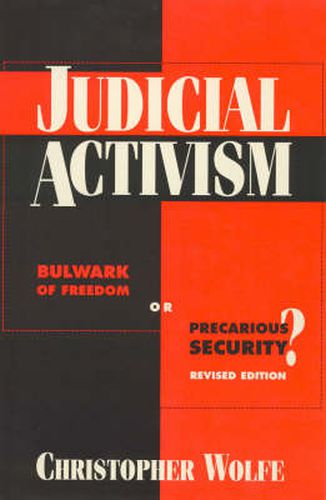Readings Newsletter
Become a Readings Member to make your shopping experience even easier.
Sign in or sign up for free!
You’re not far away from qualifying for FREE standard shipping within Australia
You’ve qualified for FREE standard shipping within Australia
The cart is loading…






In this revised and updated edition of a classic text, one of America’s leading constitutional theorists presents a brief but well-balanced history of judicial review and summarizes the arguments both for and against judicial activism within the context of American democracy. Christopher Wolfe demonstrates how modern courts have used their power to create new rights with fateful political consequences and he challenges popular opinions held by many contemporary legal scholars. This is important reading for anyone interested in the role of the judiciary within American politics. Praise for the first edition of Judicial Activism: This is a splendid contribution to the literature, integrating for the first time between two covers an extensive debate, honestly and dispassionately presented, on the role of courts in American policy. -Stanley C. Brubaker, Colgate University
$9.00 standard shipping within Australia
FREE standard shipping within Australia for orders over $100.00
Express & International shipping calculated at checkout
In this revised and updated edition of a classic text, one of America’s leading constitutional theorists presents a brief but well-balanced history of judicial review and summarizes the arguments both for and against judicial activism within the context of American democracy. Christopher Wolfe demonstrates how modern courts have used their power to create new rights with fateful political consequences and he challenges popular opinions held by many contemporary legal scholars. This is important reading for anyone interested in the role of the judiciary within American politics. Praise for the first edition of Judicial Activism: This is a splendid contribution to the literature, integrating for the first time between two covers an extensive debate, honestly and dispassionately presented, on the role of courts in American policy. -Stanley C. Brubaker, Colgate University